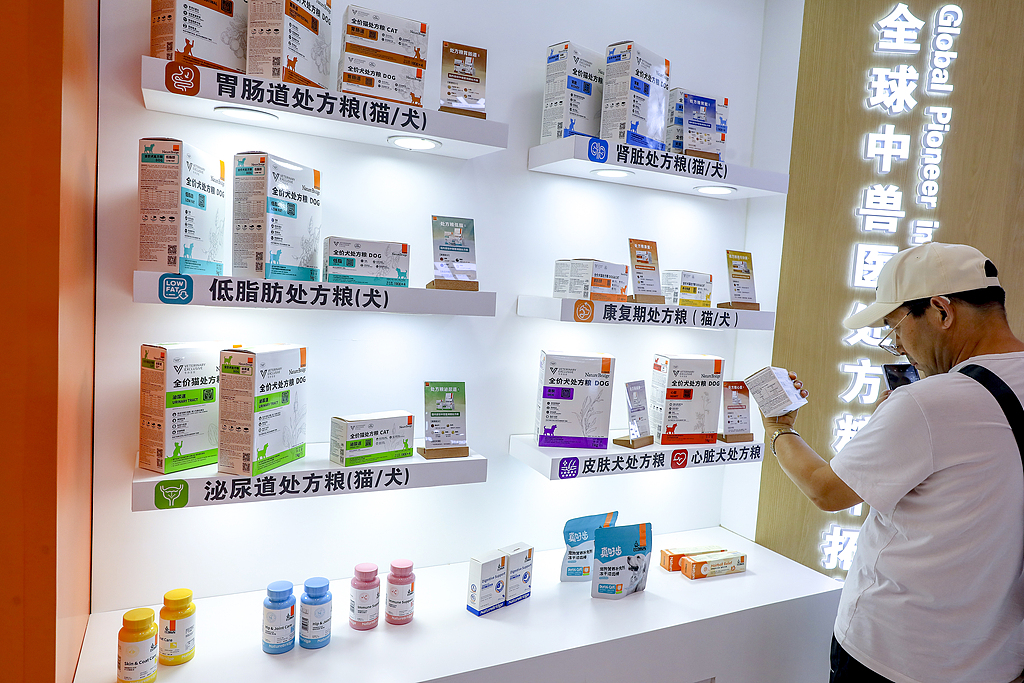Shanghai impresses global biotech, pharma markets with quality growth


Shanghai's burgeoning biotechnology and pharmaceutical sector is making significant strides in global markets, industry leaders noted ahead of the International Biopharma Industry Week Shanghai 2025 being held in the city from Monday to Wednesday.
The city's biopharmaceutical industry, alongside integrated circuits and artificial intelligence, stands as one of its three strategic pillars. The industry's scale exceeded 700 billion yuan ($98.2 billion) in 2021, with projections targeting over 1 trillion yuan by 2025, including 240 billion yuan in manufacturing output.
In 2024, China completed 110 license-out transactions in the biotechnology and pharmaceutical industry, valued at over $65.6 billion, marking a 50 percent year-on-year increase. Shanghai companies contributed 38 transactions worth $30.7 billion, representing nearly one-third of the national total.
In the first eight months of 2025, Shanghai recorded 37 license-out transactions totaling $18.82 billion. Since 2021, nine drugs have secured marketing approval in the United States, Europe, Japan, Indonesia, and other nations and regions.
"Shanghai provides an ideal international ecosystem with a superior business environment and supporting policies," said Zhu Jun, executive director and CEO of Henlius, a Shanghai-based biopharmaceutical company. "The city brings together potential partners across government, industry, academia, research, medical care and investment, while also attracting high-end talent and offering comprehensive financial and information service systems."
The city's support system, including policies facilitating R&D, innovative drug launches, and clinical trials, has been crucial for companies pursuing global expansion, according to Zhu. "International partners increasingly recognize our innovative capabilities. We're witnessing growing interest from global pharmaceutical companies seeking collaborative market expansion," he added.
He noted one example of Henlius's HLX02, which became the first China-developed biologic drug to receive concurrent approval in the European Union, China, and the United States. Through partnerships with global pharmaceutical firms, Henlius now covers over 100 countries and regions.
Shanghai United Imaging Healthcare, specializing in medical imaging and radiotherapy equipment, is also achieving global reach. "Shanghai drives industrial cluster formation at the Yangtze River Delta. As an international innovation center, it provides extensive collaborative opportunities across industry, academia, research, and healthcare," said Xue Min, chairman of United Imaging Group.
The company has established a presence in over 14,800 hospitals and institutions across more than 85 countries and regions, operating over 30 regional headquarters, sales platforms, and subsidiaries worldwide.
Xue noted that United Imaging's 2018 launch of the world's first total-body PET-CT device, developed with leading research institutions, established its reputation in the American market. The company has since established its North American headquarters, integrating R&D, production, and marketing operations with a robust local team.
"Our vision extends beyond equipment exports to achieving true global localization," Xue explained, noting the company's accelerated transformation into a truly global enterprise.
Wang Tongyan, Drug Information Association (DIA)'s senior vice president and managing director for Greater China DIA, emphasized Shanghai's role as a crucial bridge for international pharmaceutical development.
"Shanghai's openness extends beyond attracting international organizations to actively supporting their growth," Wang said, citing the city's conducive policies, streamlined approvals, and regulatory harmonization that appeal to both multinational corporations and domestic innovators.
She emphasized Shanghai's evolution from learning international standards to pioneering innovative solutions in cutting-edge areas like cell and gene therapy.
Since establishing its presence in Shanghai, DIA has leveraged its global network to facilitate Chinese innovative drugs' international expansion, fostering dialogue between Chinese and overseas regulators. "We've observed keen interest from international regulators, particularly in emerging markets, in understanding China's accelerated review processes," Wang noted.
Looking ahead, industry leaders see Shanghai playing an increasingly important role in global biotechnology and pharmaceutical innovation. "Shanghai is not only where we began; it is also the prompt of the company going international," said Zhu. "We're globalizing our capabilities and systems to bring Chinese innovation, standards, and responsibilities to the global market."




































